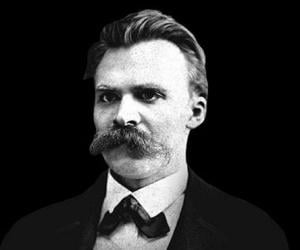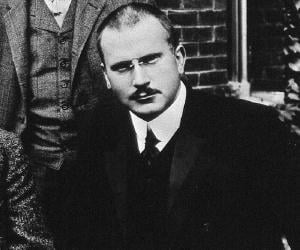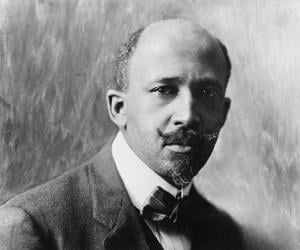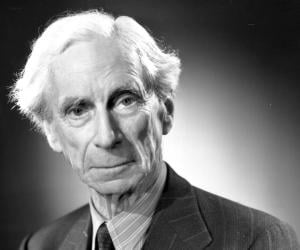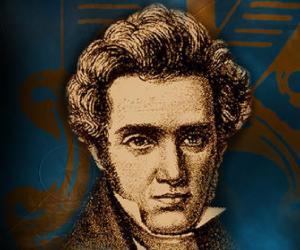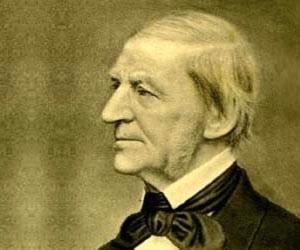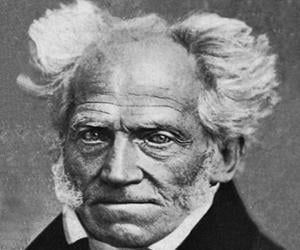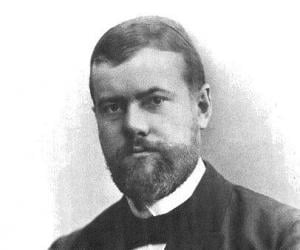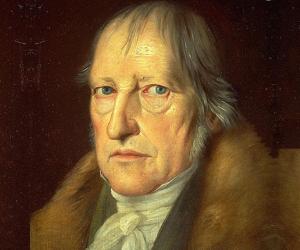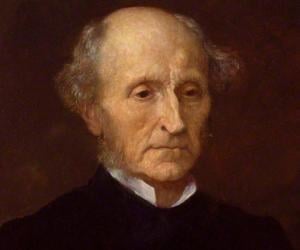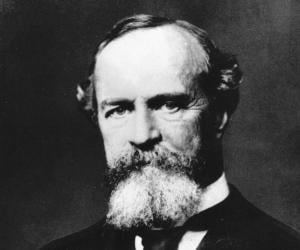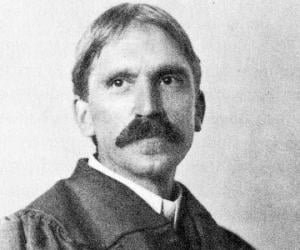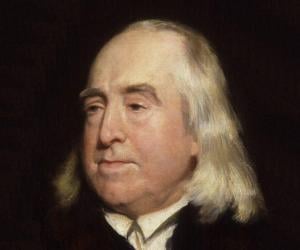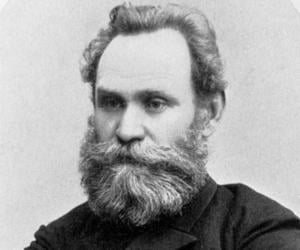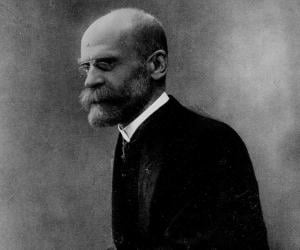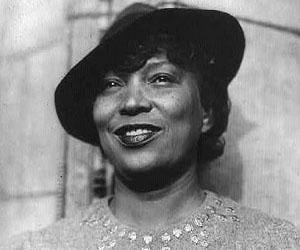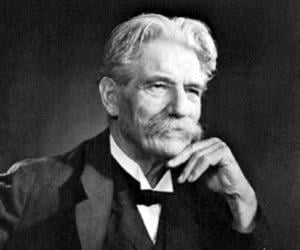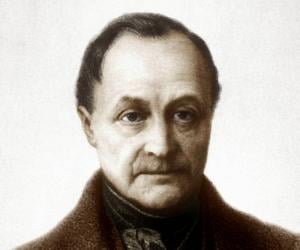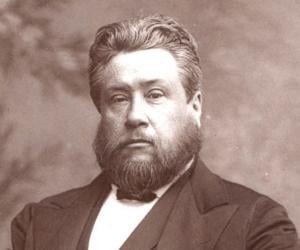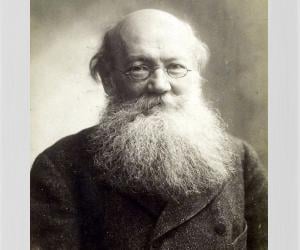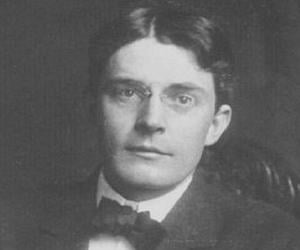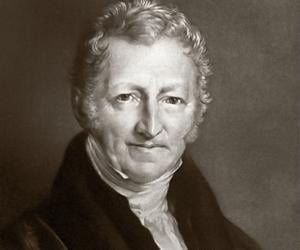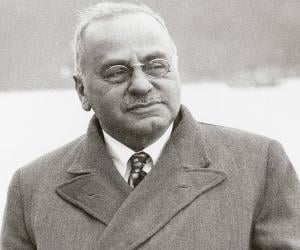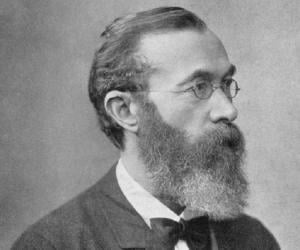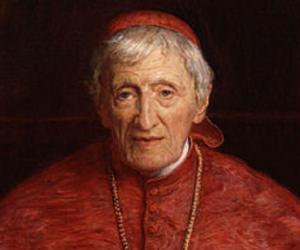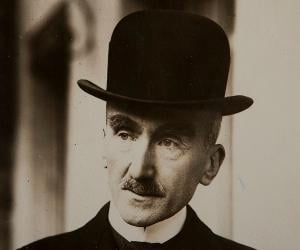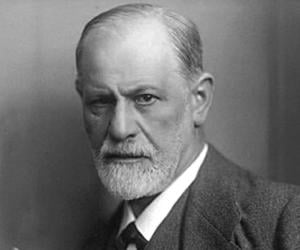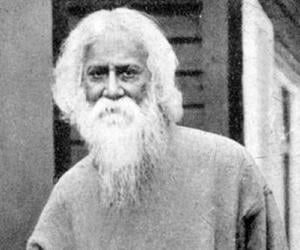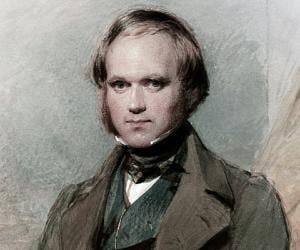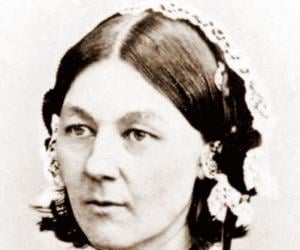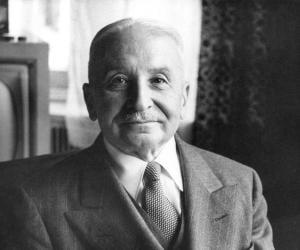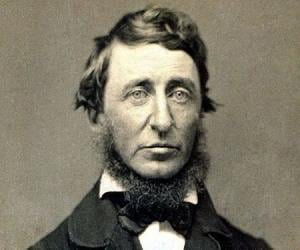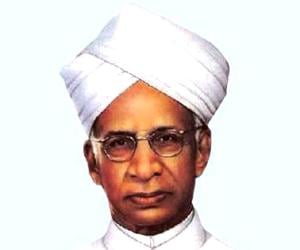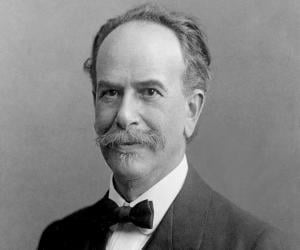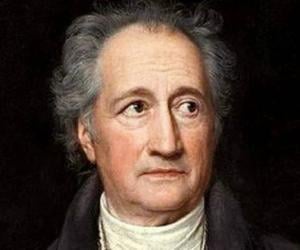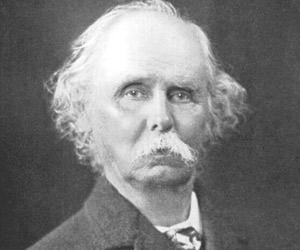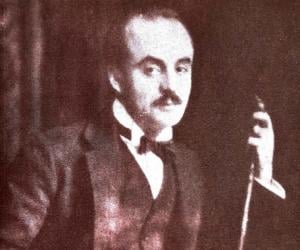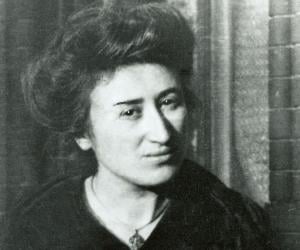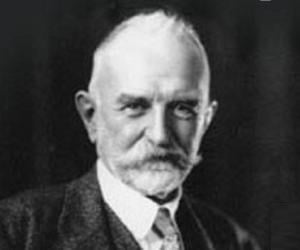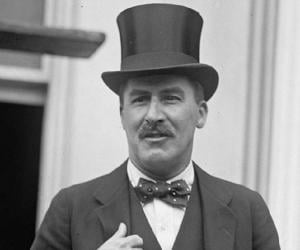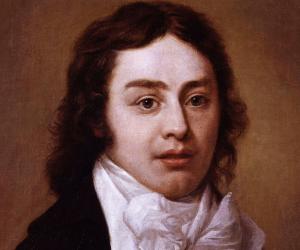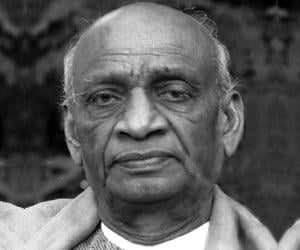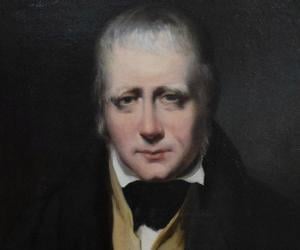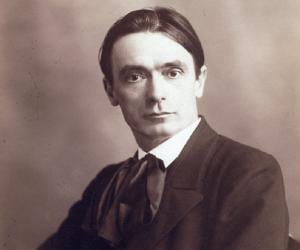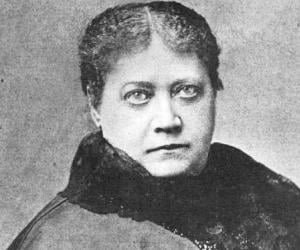German philosopher, cultural critic, composer, and poet Friedrich Nietzsche has had a profound influence on modern intellectual history. He held the Chair of Classical Philology at the University of Basel. His work spanned philosophical polemics, poetry, cultural criticism, and fiction. He suffered from numerous health problems from a young age and died at the age of 55.
Widely regarded as the father of analytical psychology, Carl Jung is one of the most important contributors to symbolization and dream analysis. The concepts of socionics and a popular psychometric instrument called Myers-Briggs Type Indicator (MBTI) were developed from Jung's theory. Apart from working as a psychiatrist and psychoanalyst, Carl Jung was also an artist, craftsman, builder, and prolific writer.
Immanuel Kant was a German philosopher whose works in fields like aesthetics and metaphysics have made him an important and influential personality in Western philosophy. His views continue to influence contemporary philosophy. Kant has had a major influence on prominent philosophers like Hegel, Schelling, Reinhold, and Fichte. Kant's work on mathematics is cited by Albert Einstein as an early influence.
W. E. B. Du Bois was an American civil rights activist, sociologist, and Pan-Africanist. Du Bois played an instrumental role in fighting for full civil rights for people of color around the world. A co-founder of the National Association for the Advancement of Colored People, Du Bois also played an important role as the leader of the Niagara Movement.
Bertrand Russell was a British polymath and Nobel laureate. His work, which is spread across various fields, has had a considerable influence on philosophy, cognitive science, artificial intelligence, mathematics, linguistics, and logic. Russell is also credited with leading the revolt against idealism in Britain and is regarded as one of the founders of analytic philosophy.
Soren Kierkegaard was a Danish philosopher, theologian, social critic, poet, and religious author. Widely regarded as the first existentialist philosopher, Soren Kierkegaard is sometimes referred to as the Father of Existentialism. He is also credited with influencing many theologians, philosophers, and writers like Paul Feyerabend, Ludwig Wittgenstein, and Jorge Luis Borges.
Ralph Waldo Emerson was an American philosopher who led the transcendentalist movement that developed in the eastern United States in the 1820s and 1830s. He is credited with popularizing individualism through his numerous lectures and essays. Emerson influenced many thinkers and writers that followed him; he mentored Henry David Thoreau, who went on to become a leading transcendentalist.
Arthur Schopenhauer was a German philosopher. He was among the first Western philosophers to affirm important tenets of Indian philosophy, such as denial of the self and asceticism. Schopenhauer's work has had a tremendous posthumous impact on disciplines like science, literature, and philosophy. His work influenced personalities like Albert Einstein, Ludwig Wittgenstein, Sigmund Freud, George Bernard Shaw, and Leo Tolstoy.
Max Weber was a German historian, political economist, jurist, and sociologist. Widely regarded as one of the most influential and important theorists, Weber's ideas had a profound influence on social research and social theory. Although he did not see himself as a sociologist, Weber is often counted among the fathers of sociology alongside Émile Durkheim, Auguste Comte, and Karl Marx.
William James was an American psychologist and philosopher. Widely regarded as the father of American psychology and one of the most influential American philosophers, James was the first educator in the United States to offer a course in psychology. He is also credited with co-founding a psychological school of thought called functional psychology and establishing a philosophical school called pragmatism.
A staunch advocate of progressive education and liberalism, the American philosopher and psychologist was the founder of the University of Chicago Laboratory Schools. John Dewey’s famous writings included The Reflex Arc Concept in Psychology and Human Nature and Conduct. According to him, passion for knowledge and intellectual curiosity were central to a teacher. He called himself a democratic socialist.
Emile Durkheim was a French sociologist. He is credited with establishing the discipline of sociology for academic purposes and is widely regarded as the chief architect of modern social science. During his lifetime, Emile Durkheim published several works on topics like morality, religion, and education. He also played a major role in the development of sociology and anthropology as disciplines.
Zora Neale Hurston was an author, anthropologist, and filmmaker. As an African American woman, she often depicted racial issues in the films she made. Her works also reflected her struggles as a black woman. In her early career, she conducted anthropological and ethnographic research and focused more on writing and film-making in her later years.
Albert Schweitzer was an Alsatian polymath who won the Nobel Peace Prize in 1952 for his philosophical work, Reverence for Life. He is credited with founding the Albert Schweitzer Hospital, which was a direct result of his philosophical expression. Schweitzer is also credited with influencing the Organ reform movement, which began in the mid-20th-century.
Charles Spurgeon was an English Particular Baptist preacher who was a powerful figure in the Reformed Baptist tradition. Hailed as the "Prince of Preachers", he was well respected by Christians of various denominations. He was pastor of the congregation of the New Park Street Chapel for almost four decades. He was the author of several books, sermons, and commentaries.
Russian philosopher Peter Kropotkin was a passionate advocate of anarcho-communism. He was also an activist, revolutionary, economist, and sociologist. He was arrested and imprisoned for his activism in 1874. However, he managed to escape and lived in exile for over 40 years in different countries across Europe. He returned to Russia after the Russian Revolution in 1917.
John B. Watson was the first to introduce the theory of behaviorism to psychology. He believed human behavior, like animal behavior, should be studied under objective and experimental conditions. One of his experiments included conditioning the fear of white rats into an 11-year-old boy he named Little Albert.
Thomas Robert Malthus was an English economist and demographer, who viewed poverty as man’s unavoidable destiny. Author of An Essay on the Principle of Population; he believed that increase in national food production results in feeling of well-being, leading to population growth, which in turn results in poverty. Commonly referred as Malthusianism, it made immediate impact on British social policy.
Alfred Adler was an Austrian psychotherapist and medical doctor. He is credited with founding the school of individual psychology. He was also one of the founders of the psychoanalytic movement along with Sigmund Freud and Freud's colleagues. In 2002, a survey conducted by Review of General Psychology named Adler among the 20th century's most eminent psychologists.
Wilhelm Wundt was a German physiologist, professor, and philosopher. He is often counted among the founders of modern psychology and is widely considered the father of experimental psychology. He is also credited with founding the first laboratory for psychological research, which he founded at the University of Leipzig in 1879.
An important figure in the English religious history, John Henry Newman was a nineteenth century theologian, scholar and poet. Famed for leading the Oxford movement in the Church of England, he later switched to the Roman Catholic Church, eventually becoming the Cardinal Deacon of St. George in Velabro. Also an influential educator and writer, he was canonized in October 2019.
French philosopher, Henri Bergson, is remembered for his contribution to the tradition of continental philosophy. His works were considered extremely influential, especially during the first half of the 20th century. He received the Nobel Prize in Literature (1927) and Grand-Croix de la Legion d'honneur (1930). He was a simple man who led a humble life despite his great achievements.
Regarded as the father of psychoanalysis, Sigmund Freud was a neurologist. Despite suffering criticism, psychoanalysis remains influential in the fields of psychology and psychiatry; such is the influence Freud has on humanities. Scholars believe that Freud is one of the most influential personalities of the 20th century and that his impact is comparable to that of Marxism and Darwinism.
Rabindranath Tagore was an Indian polymath who contributed greatly to the fields of literature, art, and philosophy. Referred to as the Bard of Bengal, Tagore is credited with reshaping Bengali literature and music. The first non-European to receive the Nobel Prize in Literature, Tagore is also credited with composing the national anthems of India and Bangladesh.
Widely regarded as one of the most influential personalities in the history of mankind, Charles Darwin was an English biologist, naturalist, and geologist. He is credited with publishing the Theory of Evolution, which explains the evolution of life from a unicellular organism to human beings. A prolific writer, Charles Darwin also wrote important books on plants and barnacles.
Henry David Thoreau was an American philosopher, essayist, poet, and naturalist. He is credited with popularizing transcendentalism and simple living. His philosophy of civil disobedience, which was detailed in his essay of the same name, later influenced world-renowned personalities like Leo Tolstoy, Martin Luther King Jr., and Mahatma Gandhi.
Sarvepalli Radhakrishnan was the second President of India and served from 1962 to 1967. He is regarded as one of India’s most eminent scholars and wrote extensively on Indian philosophy and religion. Lifelong he defended Hindu traditions and culture against criticism from the West. September 5, his birthday, is observed as Teachers Day in India, in his honour.
Remembered for his research on cultural relativism, German-born American anthropologist Franz Boas is often referred to as the Father of American Anthropology. The son of a merchant, he was a sickly child who grew up reading a lot. He also studied folklore and developed it as an academic discipline.
Regarded as the greatest literary figure in Germany's modern era, Johann Wolfgang von Goethe was a statesman and writer. Apart from writing poetry and prose, he also wrote treatises on color, anatomy, and botany. Thanks to his literary genius, Goethe was made part of the Duke's privy council in Weimar and he implemented several reforms at the University of Jena.
One of the co-founders of the English neoclassical school of economics, 19th-century economist Alfred Marshall is best remembered for his path-breaking book Principles of Economics. His studies on topics such as marginal utility, consumer’s surplus, and the elasticity of demand, enriched the field of economics for years to come.
Edmund Husserl was a German philosopher of Moravian origin. He established the school of phenomenology. He studied mathematics, physics, and astronomy at the University of Leipzig and worked as an assistant to mathematician Karl Weierstrass. He later became a professor of philosophy and taught for several years. He is considered a major figure in 20th-century philosophy.
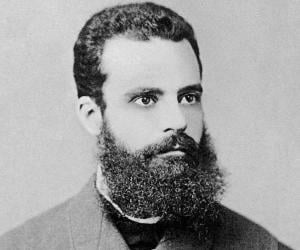
A qualified civil engineer, Vilfredo Pareto had initially worked for the railways and the ironworks. However, he gradually deviated to philosophy, sociology, and politics and gained fame for his application of math to economic issues and his introduction of Pareto efficiency. Mind and Society remains his best-known work.
Lebanese author and poet Khalil Gibran is best remembered for his bestselling works The Prophet and Broken Wings. One of the leaders of the Mahjar movement of Arabic literature, he specialized in incorporating mythological and mystical symbols in his works and was inspired by Friedrich Nietzsche and William Blake.
American philosopher and social psychologist George Herbert Mead was one of the pioneers of pragmatism and symbolic interactionism. He taught at the University of Chicago, and his ideas later came to be known as the Chicago school of sociology. His notable lectures were published as books only after his death.
Samuel Coleridge was an English poet, philosopher, theologian, and literary critic. He is credited with co-founding the Romantic Movement in England along with his friend William Wordsworth. Despite struggling from bouts of depression and anxiety throughout his adult life, Samuel Coleridge had a major influence on American transcendentalism and writers like Ralph Waldo Emerson.
George Boole is remembered for pioneering Boolean algebra, a tool used in digital computer circuits. More of a self-taught mathematician, Boole began teaching at 16 and later grew up to be a math professor at Queen’s College, Cork. His work in differential equations and algebraic logic was groundbreaking.
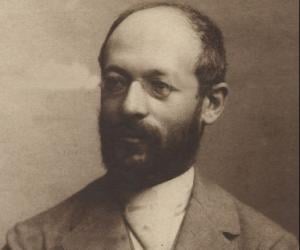
Georg Simmel was a German sociologist, philosopher, and critic considered a forerunner to structuralist styles of reasoning in the social sciences. He was neo-Kantian in his approach and laid the foundations for sociological antipositivism. He broadly rejected academic standards and wrote extensively on the philosophy of Schopenhauer and Nietzsche. He was married to philosopher Gertrud Kinel and had one son.
Sardar Vallabhbhai Patel was an Indian politician who played an influential role in the Indian independence movement. Dubbed the Iron Man of India and Unifier of India, Sardar Patel played an important role in integrating various princely states into a united, independent nation. In 2018, the world's tallest statue called the Statue of Unity was dedicated to Sardar Vallabhbhai Patel.
Walter Scott was a Scottish novelist, poet, historian, and playwright. Scott's ability as a writer and his knowledge of history made him a pioneering figure in the formation of the historical novel genre. An influential writer, many of his works remain classics of Scottish as well as English-language literature. Scott was admired by other prominent writers like Letitia Elizabeth Landon.
Austrian philosopher and architect and Rudolf Steiner gained fame as a literary critic and published works such as The Philosophy of Freedom. His interests included esotericism and clairvoyance. He termed his work spiritual science. He designed the Goetheanum and also laid down concepts such as Waldorf education and biodynamic agriculture.
Russian philosopher Helena Blavatsky, or Madame Blavatsky, was one of the co-founders of the Theosophical Society. She popularized the slogan “There is no religion higher than truth.” She was inspired by the Arya Samaj and later converted to Buddhism. She also wrote books such as The Secret Doctrine.
